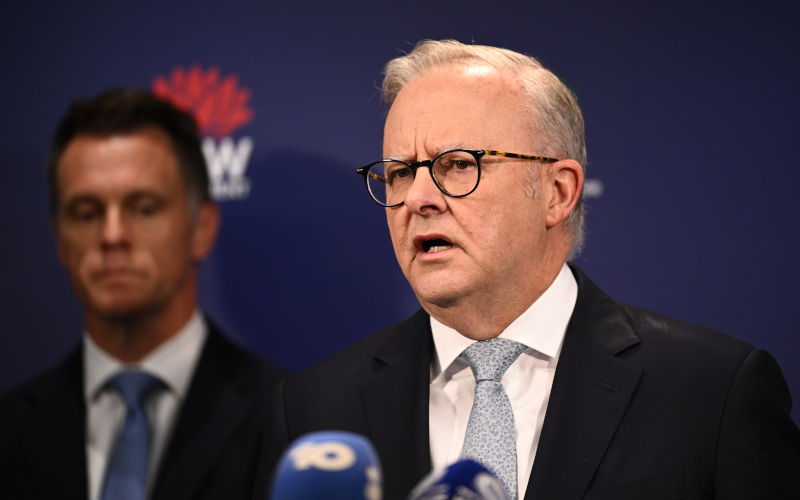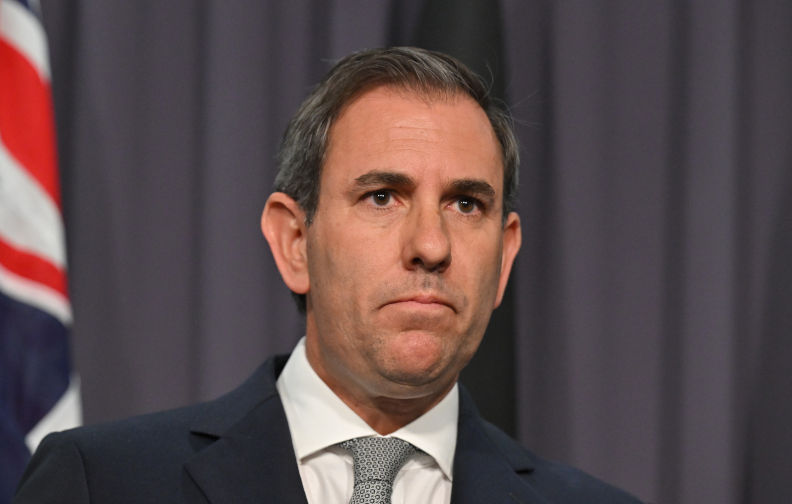
Pearlcasts
As we review 2025, the temptation is to look for neat summaries and settled conclusions.
Go to Pearlcasts
14 January 2026
Trump is delusional about Venezuelan oil
Trump is banking on Venezuela’s vast oil reserves to justify US intervention. But the state of the industry, global energy shifts and basic economics point to failure.

14 January 2026
Why Australia should walk away from AUKUS
Trump’s actions in Venezuela and rhetoric elsewhere confirm that the United States no longer respects international law or allied interests. Australia should rethink its strategic dependence accordingly.

14 January 2026
Best of 2025 - The ABC and News Corp finally agree on something: China panic
Last week, a friend asked if I was worried about Chinese “nuclear threats.

14 January 2026
Best of 2025 - Gaza under siege: The continuation of Zionist demographic cleansing policies since the 19th century
Israeli propaganda tries to present the war on Gaza as a “defensive reaction.” Yet the historical record tells a very different story: systematic genocide, the destruction of civilian life and deliberate attempts to uproot entire populations. All of this is a direct continuation of Zionist colonial policies that began in the late 19th century.

14 January 2026
Best of 2025 - Taiwan as an integral part of China: A historical, legal and geopolitical analysis
The status of Taiwan remains one of the most contested topics in modern geopolitics and one of the most misrepresented.

14 January 2026
Best of 2025 - Open letter to David Marr on his interview with Chris Hedges
Well-known journalist Chris Hedges, whose talk scheduled to be delivered at the National Press Club was suddenly cancelled, was confronted by the ABC's Late Night Live host David Marr in an unexpectedly ferocious interview. One reader took exception to this.

14 January 2026
Best of 2025 - Gunboat hypocrisy in the Caribbean
Even as Donald Trump crisscrosses the globe, bringing his purported peacemaking skills to parts of the world that did not even know they were at war, his administration has openly been preparing for militarised regime change in Venezuela. Neighbouring Colombia too isn’t safe.

14 January 2026
Best of 2025 - Getting away with murder
What happens in Australia if Israel gets away with genocide?

14 January 2026
Best of 2025 - Trump’s risky American economy
Trump’s tariffs, migration and fiscal policies are endangering the American economy, and risk destroying American claims to global leadership.

14 January 2026
Best of 2025 - Whitlam dismissal secrets unearthed from the archives of the Canadian governor-general
This newly uncovered material, exclusively published by Crikey, is the first indication from Sir John Kerr himself that Queen Elizabeth II approved of the position he had taken during his dismissal of Gough Whitlam.

14 January 2026
Best of 2025 - From illusion to real peace: Trump’s test in Gaza and Ukraine
Real peace demands Palestinian statehood, Ukrainian neutrality and the courage to defy the war lobby.
Read our series
Latest on Palestine and Israel

14 January 2026
Best of 2025 - Gaza under siege: The continuation of Zionist demographic cleansing policies since the 19th century
Israeli propaganda tries to present the war on Gaza as a “defensive reaction.” Yet the historical record tells a very different story: systematic genocide, the destruction of civilian life and deliberate attempts to uproot entire populations. All of this is a direct continuation of Zionist colonial policies that began in the late 19th century.

14 January 2026
Best of 2025 - From illusion to real peace: Trump’s test in Gaza and Ukraine
Real peace demands Palestinian statehood, Ukrainian neutrality and the courage to defy the war lobby.

14 January 2026
Best of 2025 - The three core myths driving Israel’s war on Palestine
Israeli journalist Gideon Levy, one of the most outspoken moral critics within Israel itself, once summarised what he called the “three core values of Israeli society”: the belief that Jews are the chosen people; that they are the world’s ultimate victims; and that Palestinians are not equal human beings.

13 January 2026
Best of 2025 - Chris Sidoti on the International Court of Justice Gaza ruling
Yuji Iwasawa, president of the UN's highest court, says international law prohibits the use of starvation of the civilian population as a method of warfare.

13 January 2026
Best of 2025 - On Israel, Zionism and being Jewish
No political conflict contains as many journalistic minefields as that between Israel and Palestine.

12 January 2026
Best of 2025 - Shameful distortion that lies at the heart of US conservative politics
The news of ceasefire and release of hostages in Gaza is cause for great rejoicing and for giving credit where it is due. But the big questions remain: where to from here, and how did the world allow this to happen in the first place?

12 January 2026
Best of 2025 - Israel’s response to the International Court of Justice
The ceasefire plan in Gaza has dominated our news in recent days and weeks. One aspect of the plan is the obligation of Israel in the first phase to release a number — a large number — of Palestinian prisoners.

11 January 2026
Best of 2025 - Between two wounds: Gaza confronts Trump's plan to end the war
On a cold morning in central Gaza City, Nevin Al-Barbari, 35, sat in what remained of her family home, watching her two-year-old daughter, Reem, explore the rooms she had only recently come to know.

Israel's war against Gaza
Media coverage of the war in Gaza since October 2023 has spread a series of lies propagated by Israel and the United States. This publication presents information, analysis, clarification, views and perspectives largely unavailable in mainstream media in Australia and elsewhere.
Download the PDFLatest on China

14 January 2026
Best of 2025 - The ABC and News Corp finally agree on something: China panic
Last week, a friend asked if I was worried about Chinese “nuclear threats.

14 January 2026
Best of 2025 - Taiwan as an integral part of China: A historical, legal and geopolitical analysis
The status of Taiwan remains one of the most contested topics in modern geopolitics and one of the most misrepresented.

12 January 2026
Best of 2025 - Lack of China capability can only do harm to society: Our current situation is a disgrace
In March 2023, the Australian Academy of the Humanities sounded the alarm on the decline in our understanding and knowledge of China through a report on “Australia’s China Knowledge Capability”.

Support our independent media with your donation
Pearls and Irritations leads the way in raising and analysing vital issues often neglected in mainstream media. Your contribution supports our independence and quality commentary on matters importance to Australia and our region.
DonateMore from Pearls and Irritations
Latest letters to the editor
The people and the common good
Chris Young — Surrey Hills, Vic
Can we discuss degrowth without the ideology?
Jenny Goldie — Cooma NSW
Getting submarines, or funding the US to get them
Les Macdonald — Balmain NSW 2041
Vast educational inequality
Les Macdonald — Balmain NSW 2041








